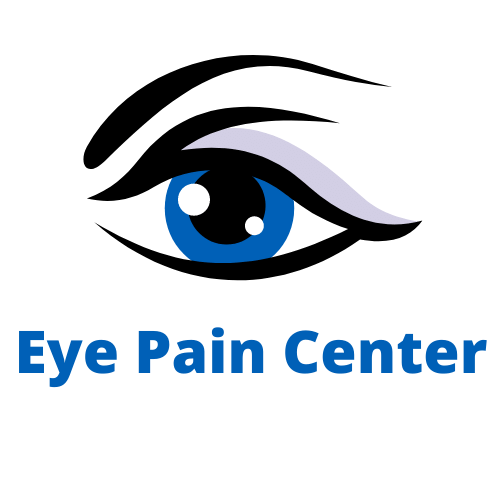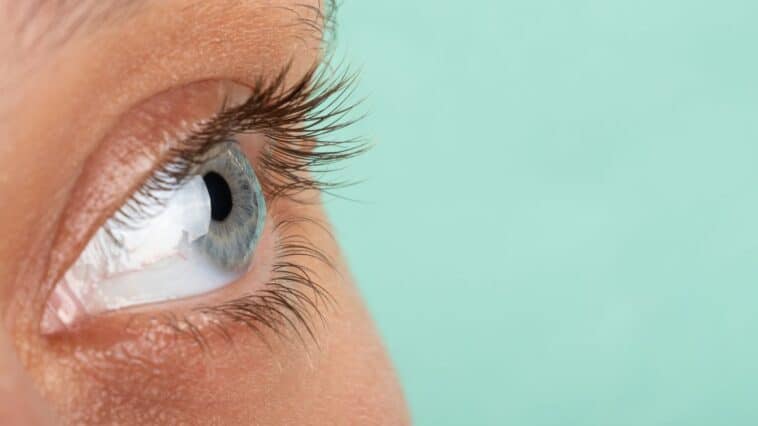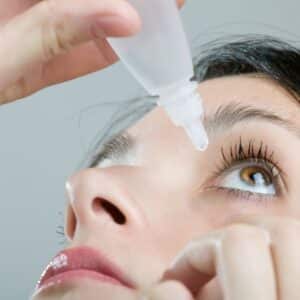What is a Corneal Abrasion?
A scratched cornea, also called a corneal abrasion or scratched eye, is a common eye injury that happens when the transparent front surface of the eye, known as the cornea, is scratched. This scratch damages the outer layer of cells that protect the cornea, called the corneal epithelium, and creates an open wound that increases the risk of a severe eye infection.
If you suspect that you have a corneal abrasion, it is crucial to seek immediate medical attention from an eye doctor.
Causes Of Corneal Abrasion?
Corneal abrasions can be caused by various things that come into contact with the eye’s surface. Common causes of corneal abrasions include:
- Scratches from fingernails or other objects
- Dust, sand, or other small particles that get in the eye
- Foreign bodies such as metal or glass fragments
- Chemical burns from exposure to irritants such as cleaning products or hair dye
- Contact lenses use, especially if lenses are worn for too long or are not properly cleaned or stored
- Eye surgery or trauma, such as getting hit in the eye with a ball or other object
- Dry eyes can cause the eyelids to stick to the eye surface and tear off the corneal epithelium.
Symptoms of a Corneal Abrasion?
The symptoms of corneal abrasion may include:
- Eye pain and discomfort, which may be mild to severe
- Sensitivity to light (photophobia)
- Blurred or hazy vision
- Redness of the eye
- Tearing
- Gritty feeling in the eye
- Headache
- Feeling like there is something in your eye
If you notice any of these symptoms, scheduling an appointment with an ophthalmologist is crucial. They will be able to determine whether you have a corneal abrasion or some other eye condition that requires prompt attention.
Don’t delay seeking medical help if you experience any discomfort or vision changes in your eyes. Remember, your eyesight is crucial to your overall health and well-being.
What to Expect From a Scratched Cornea?
A scratched cornea can be a painful and uncomfortable experience, and knowing what to expect and how to care for it properly is essential.
Rubbing the eye can cause further damage and increase the risk of infection. If you feel something is in your eye, resist the urge to rub it. Instead, attempt to flush out the eye with sterile saline eye wash or a multipurpose contact lens solution. Avoid using tap or bottled water as they may contain harmful microorganisms that can cause severe infections in the eye.
If flushing the eye doesn’t alleviate the redness, pain, or foreign body sensation, seek immediate medical attention. Corneal abrasions can cause serious harm to the eye within hours if left untreated.
To diagnose a corneal abrasion, your ophthalmologist may apply a numbing eye drop to your eye so that you can keep it open during the exam. A temporary dye may also help the doctor see the extent of the abrasion. The dye can make the abrasion more visible when viewed with a blue light and a microscope called a slit lamp.
Depending on the cause of the scratch and the severity of the injury, your eye may be swabbed for a culture to ensure proper treatment in the event of an infection.
A corneal abrasion typically affects only one eye and can feel like something is on or in your eye. It is essential to avoid patching the eye, as this can increase bacterial growth and the risk of infection.
If left untreated, some corneal abrasions can cause recurrent corneal erosions and other complications that can affect your vision, health, and comfort. Therefore, it is essential to follow your eye doctor’s recommendations for treatment and attend all follow-up appointments as directed.
Treatment for Corneal Abrasion?
The treatment options for a corneal abrasion depend on the severity of the injury. Here are some possible treatment options:
- Non-Preserved Lubricating Drops: Minor abrasions can sometimes be treated with non-preserved lubricating drops to keep the eye moist and comfortable while natural healing occurs. These drops can help reduce pain and discomfort.
- Antibiotic Eye Drops: Even superficial abrasions can be treated with antibiotic eye drops to prevent infection during healing. Your doctor may prescribe antibiotic eye drops as a precaution, especially if there is a risk of infection due to the nature of the injury or other factors.
- Antibiotic Ointment: Certain corneal abrasions may require a specialized antibiotic ointment that stays on the eye for maximum effectiveness, as well as a steroid to decrease inflammation and something to relieve pain and light sensitivity. Your eye doctor may recommend combining treatments to help the healing process.
- Bandage Contact Lens: Scratched corneas are sometimes treated with a bandage contact lens. These lenses can protect the eye and help the healing process. These special lenses relieve pain and sometimes speed healing with prescription eye drops.
- Steroids: Steroid eye drops to decrease inflammation and promote healing in more severe cases of corneal abrasions. Your doctor will determine if the benefits of using steroid eye drops outweigh the potential risks and will provide instructions on how to use them properly. However, it is essential to note that steroids should be used cautiously as they can delay healing and increase the risk of infection if not used properly.
- Pain Medications: Your eye doctor may recommend over-the-counter pain medications or prescribe something stronger to relieve pain and discomfort.
- Surgery: In some instances, surgery may be required when a deep corneal abrasion fails to heal correctly or poses a risk of permanent eye damage. However, this option is only considered after other treatments have been exhausted.
Corneal abrasions can cause complications affecting your vision, comfort, and health. Most corneal abrasions heal quickly with no permanent vision loss when treated right away.
However, some deeper abrasions in the center of the cornea can leave a corneal scar and result in a loss of visual acuity.
If left untreated, some deep corneal abrasions may cause a corneal ulcer that can result in severe vision loss.
It’s important to follow your doctor’s treatment recommendations and attend follow-up visits as directed.
How to Prevent a Scratched Eye
A scratched or corneal abrasion is a common eye injury that can occur for various reasons, including foreign objects in the eye, rubbing the eye too hard, or wearing contact lenses for too long. To prevent a scratched eye, you can follow these simple precautions:
- Wear Protective Eyewear: Always wear protective eyewear when doing any activity that involves airborne debris or flying objects, such as playing sports, using power tools, or doing yard work. Safety glasses or goggles can provide a barrier and protect your eyes from injury.
- Follow Contact Lenses Care Instructions: If you wear contact lenses, it’s essential to follow your eye doctor’s instructions regarding how long to wear them, when to discard them, and the proper contact lens care solutions to use. Also, avoid wearing contact lenses while swimming, as they can trap bacteria and other harmful microorganisms that may cause infection.
- Don’t Rub Your Eyes: When something gets into your eye, avoid rubbing it. Instead, try to flush out the object by blinking or using a saline solution. Rubbing your eyes can cause more damage and may lead to a corneal abrasion.
- Protect Your Eyes from UV Radiation: Prolonged exposure to UV radiation can harm your eyes and cause corneal abrasions. To avoid this, wearing sunglasses or a hat with a brim that can shield your eyes from the sun’s harmful rays is recommended.
- Take Breaks from Screens: Staring at a computer or phone screen for too long can lead to eye strain and dry eyes, increasing the risk of corneal abrasions. To prevent this, take regular breaks and look away from your screen every 20 minutes.
- Treat Dry Eyes: If you have dry eyes, see an eye specialist and follow the recommended dry eye treatment protocol. Dry eyes can cause corneal abrasions, and treating them can prevent the injury.
To avoid scratching your eyes and potential injuries, taking precautions is essential. If you experience a corneal abrasion, seek immediate medical attention to prevent further harm and ensure a speedy recovery.
Conclusion
A scratched cornea can be a painful and potentially serious injury. It is vital to take preventive measures, such as wearing protective eyewear and adequately caring for contact lenses, to avoid corneal abrasions.
If a corneal abrasion does occur, it is essential to seek prompt medical attention to prevent infection and promote healing.
Treatment options range from non-preserved lubricating drops to bandage contact lenses, depending on the severity of the injury.
Following recommended treatment protocols and attending follow-up appointments, most corneal abrasions can heal without permanent damage to vision.






